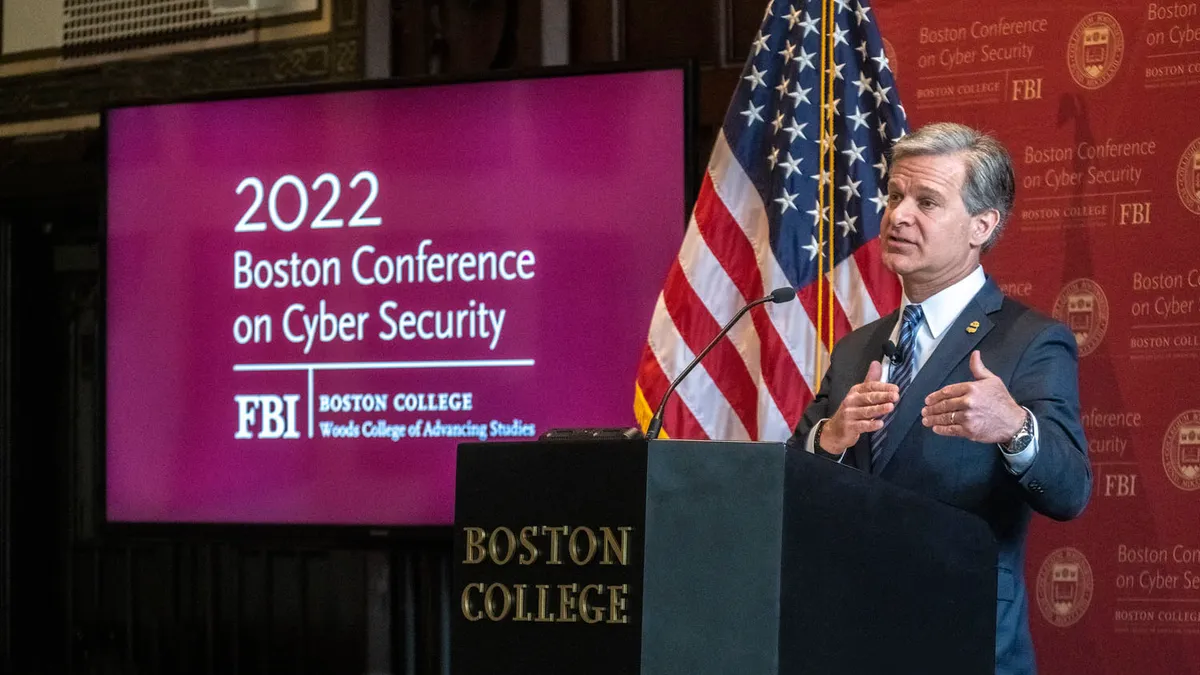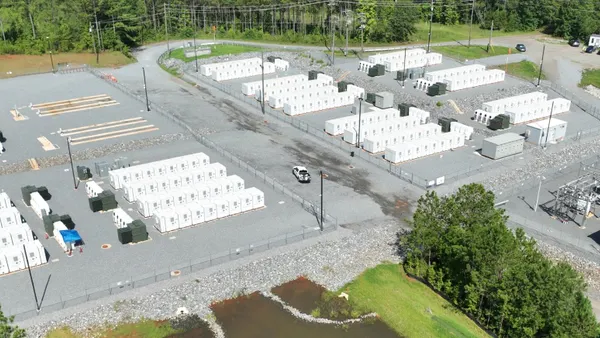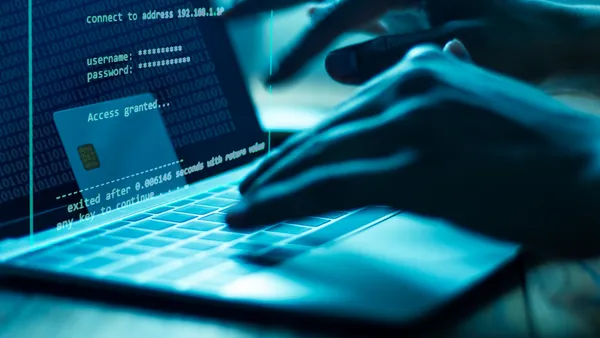Dive Brief:
- FBI Director Christopher Wray said state-linked threat groups are ramping up threat activity against the U.S., and pose a continued risk to key critical infrastructure sectors, in a speech Tuesday before the American Bar Association's Standing Committee on Law and National Security.
- Threat actors linked with the People’s Republic of China are continuing to build out offensive capabilities, setting up access to various sectors such as the water, energy and telecommunications industries, according to Wray.
- “We’re seeing hostile nation states become more aggressive in their efforts to steal our secrets and our innovation, target our critical infrastructure, export their aggression to our shores and front and center is China,” Wray said.
Dive Insight:
Wray and other top national security and cybersecurity officials testified before the House Select Committee on the Chinese Communist Party in January about Volt Typhoon, a China-linked threat actor that has been working to embed itself within key critical infrastructure sectors.
The threat actor has been working to potentially launch a diversionary attack against the U.S. in case of military action breaking out in the Asia-Pacific region, Wray testified.
Just last month the Five Eyes intelligence partners issued an advisory urging critical infrastructure leaders to take the threat from China seriously.
Russia-affiliated threat actors are also targeting critical infrastructure in the U.S. and elsewhere around the world, focused on underwater cables and industrial control systems, Wray said.
Wray noted that Section 702 of the Foreign Intelligence Surveillance Act – which os scheduled to expire in a few weeks without Congressional action – has been critical in combating cyber threats.
FISA Section 702 queries allows the U.S to conduct surveillance of foreign intelligence adversaries that are using electronic communications. These targets often include terrorists, spies and hackers in many cases.
Wray said 702 allowed the FBI to alert 300 victims in the U.S. and abroad using the ability to conduct U.S. person queries. He also cited the use of 702 to help the FBI discover compromised network infrastructure at a transportation hub in the U.S.
However, fierce opposition remains over the surveillance authority and how it can be used to sweep up Americans.














